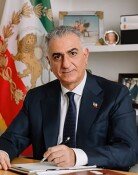Bill to forcefully unlock cellphones
Bill to forcefully unlock cellphones
Posted November. 14, 2020 07:33,
Updated November. 14, 2020 07:33
Minister of Justice Chu Mi-ae ordered on Thursday to examine the enactment of a law to force a suspect to share the passcode of his or her cellphone and take actions in case of non-compliance under certain requirements, such as an order by a court, when the suspect tries to hide the passcode in bad faith or hinder an investigation. The idea is to force unlocking the phone by law.
It is shocking that such an idea can be developed by a minister in charge of a constitutional government. Even a person suspected of crimes should be able to exercise the right to defense stipulated in the Constitution as one of the fundamental rights of a South Korean citizen. “No citizen shall be tortured or be compelled to testify against himself/herself in criminal cases,” Article 12 Paragraph 2 of the South Korean Constitution says. In order to protect the Constitutional right, a suspect can exercise the right to remain silent in an investigation office and cannot be punished for the destruction of evidence as long as it concerns him or herself. Forcing to submit the passcode of a cellphone full of personal information is in direct violation of the spirit of the Constitution.
Many point to the fact that forcing a person to share the passcode, which is memorized by a device owner to protect privacy also violates the constitutional freedom of conscience. The reason why an investigative agency would run a program for several months to unlock a phone when a suspect does not cooperate to share its passcode is the passcode of a cellphone is considered inviolable personal information. The legal consensus is that it is an investigator’s responsibility to obtain evidence stored in a cellphone and that a suspect does not have the obligation to cooperate. The U.K.’s Regulation of Investigatory Powers Act, referred to by Chu as an overseas example, has a fundamentally different purpose from Chu’s idea of focusing on general criminal cases as it is limited to national security, such as terror attacks prevention. The British law’s article on forcefully unlocking a cellphone raised as intense discussions on human rights violations as to have been postponed for seven years before taking effect even though it is intended for terrorists.
A forceful investigation, such as seizure and search, has been restricted, if possible, since the democratization of the country to protect privacy. The minister of justice’s support for the “big brother law,” which is likely to cause humans rights violations, instead of leading the efforts to protect human rights makes the public nervous. Even Minbyun and People's Solidarity for Participatory Democracy strongly criticized her. On top of her flaws revealed so far, such as blunt remarks, suspicious about her son, and attempts to dominate the prosecution, it is concerning whether she is equipped with basic awareness and knowledge about human rights and the Constitution, required for a minister of justice.
Tae-Hoon Lee jefflee@donga.com







